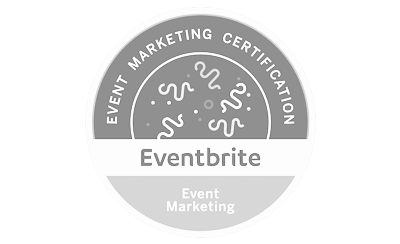
If you’re planning to speak at an event or you want to pitch yourself to speak at an event, you’ll need to write a speaker biography to properly introduce yourself to the audience. But what should you put in the bio? How do you highlight your skills without sounding like you’re bragging? Personally, I’ve found it hard to encapsulate all of who I am in one short speaker biography while not sounding a tad self-important.
Your biography is potentially the most important piece you’ll ever write about yourself. It’s the first introduction to who you are, what you do, and what you’re all about. It’s an opportunity for you to succinctly explain your work, competence, and areas of expertise. What you choose to highlight will play a role in others deciding to attend your speaking session, follow you online, call you, connect in person, or invite you to participate in an event.
Professional speakers are the most important factor in encouraging event turnout for 65% of attendees. Thus, the ability to get the right message out about a speaker has a huge impact on event attendance. While giving a great speech for your audience is important, without a strong bio attracting attendees to your speech you might wind up without an audience at all. A speaker biography helps establish your credibility before you even speak, which in turn encourages attendees to view you as an expert, making them more likely to attend your presentation.
Speaker Bio Format and Content
A speaker bio should include a brief summary of your education, work history, and experience relevant to your speaking topic. When you’re writing your bio, you want to focus on how the audience perceives you. What is it about you that would be most important or interesting to them? How did you become an expert on this topic? One of the biggest goals of a speaker biography is to grab potential event attendees’ attention and get them to register and attend your presentation. A fascinating bio can convert an undecided into an attendee.
The organization requesting your speaker bio may specify a format and length. If they don’t, follow these guidelines:
- Always write about yourself in the third person.
- Make it clear what the speech is going to be about to gather the right audience.
- Keep it brief at no more than 75 to 100 words, because if it’s too long simply won’t get read.
- List your current position and a brief mention of work history and experience.
- State academic qualifications, awards, and published work.
- Include one remarkable fact about yourself to help personalize you to your audience and make you more memorable.
- Keep it brief and relevant to the speaking engagement topic.
No One Can Have Just One: Cater It To Your Audience
Your speaker bio will go a long way! It will be used for introductory purposes on promotional materials. And, a good speaker biography for a conference will attract the right target demographic to come hear you speak. Keep in mind that your speaker bio is not a static element, meaning it should be tweaked and updated so it’s tailored to the presentation you are giving, the conference you are attending, and/or the audience you want to attract. Make sure to review your bio and check it against all of those factors before submitting it to ensure the best possible result.














Leave a Comment